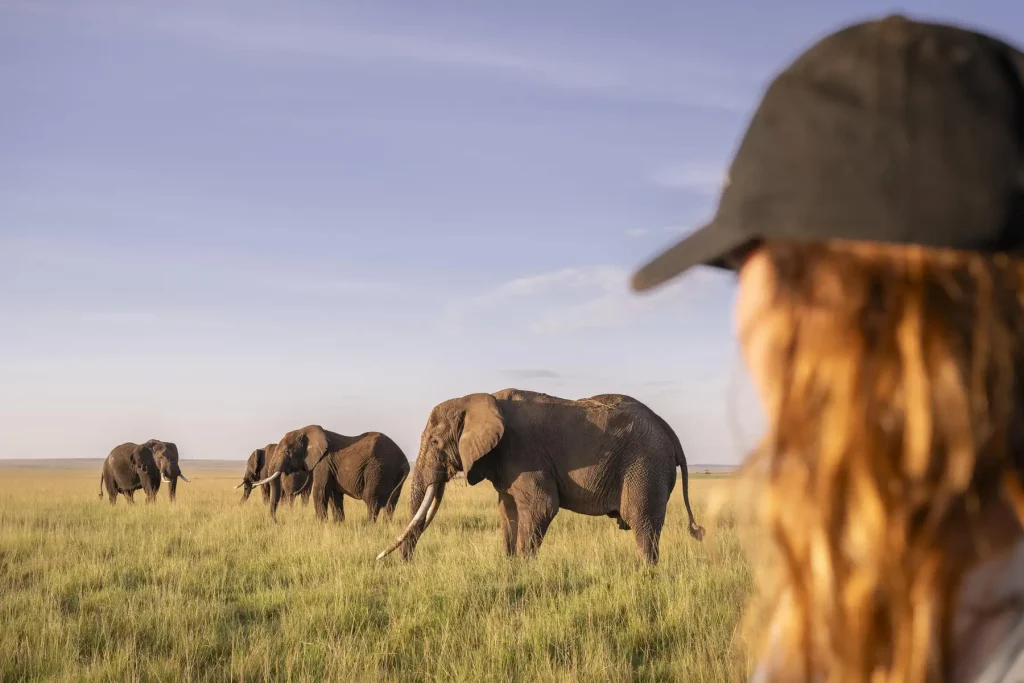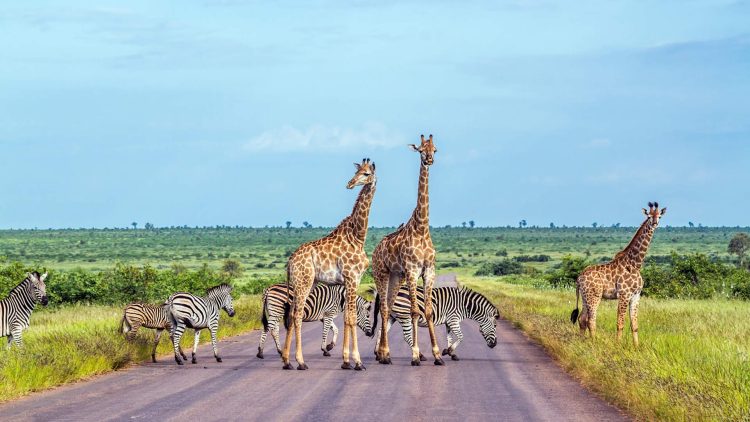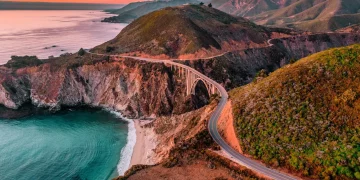General Travel Advice for First-Timers in South Africa
South Africa has become one of the most sought-after travel destinations in recent years, and for good reason. Whether you’re seeking adventure, relaxation, or cultural immersion, South Africa offers a bit of everything. The country’s diverse landscapes, rich history, and vibrant cities provide endless opportunities for exploration. From the bustling streets of Cape Town to the stunning wildlife of Kruger National Park, there is no shortage of awe-inspiring sights and experiences. However, for first-time visitors, South Africa can be a bit daunting due to its size, varied geography, and cultural differences.
To help you make the most of your first trip, here’s a comprehensive guide with essential travel hacks to ensure your South African adventure is safe, enjoyable, and stress-free. Whether you’re planning to visit the iconic Table Mountain, embark on a safari, or explore the coastal Garden Route, these tips will give you the confidence to navigate this beautiful country like a pro.
Insider Tips on Local Transportation, Food, and Etiquette
South Africa is a country that embraces diversity in every sense—its culture, its landscapes, and even its approach to transportation and food. Understanding these aspects will make your trip more seamless and enjoyable.
1. Local Transportation: Navigating South Africa’s Roadways
South Africa is a country best explored by car, as many of the top attractions are spread out across the country. Whether you’re driving yourself or relying on public transportation, here are some key tips:
- Renting a Car: Renting a car is one of the best ways to get around, especially if you plan to explore beyond the cities. The road infrastructure in South Africa is generally good, but driving can still be an unfamiliar experience, particularly if you’re not used to driving on the left side of the road. Be sure to familiarize yourself with local traffic laws and always have a GPS or map with you.
- Self-Drive Tours: Popular routes like the Garden Route and the Cape Winelands are ideal for self-drive tours. If you’re not comfortable with driving, consider hiring a car with a driver/guide to enhance your experience.
- Public Transportation: While South Africa has a network of trains and buses, public transport is not always reliable or safe, particularly in major cities like Johannesburg. However, in Cape Town, the MyCiti bus service is a safe and convenient option for tourists. Alternatively, taxis and ride-sharing apps like Uber are widely available in urban areas.
- Domestic Flights: South Africa is a large country, and domestic flights are an excellent way to cover long distances quickly. Major airlines like South African Airways and Kulula offer regular flights to and from cities like Cape Town, Johannesburg, and Durban. Booking flights early can save you money, but keep in mind that prices may fluctuate, especially during peak seasons.
2. The Local Cuisine: A Taste of South Africa’s Diverse Flavors
South African cuisine reflects the country’s rich cultural mix of indigenous African, Dutch, British, and Malay influences. Food lovers will find a variety of tastes and textures, from hearty stews to spicy curries. Here are some must-try dishes:
- Biltong: This dried cured meat, similar to beef jerky, is one of South Africa’s most beloved snacks. Available in a variety of flavors, it’s perfect for a quick bite while you’re on the go.
- Bunny Chow: A dish with Indian roots, bunny chow is a hollowed-out loaf of white bread filled with curry. It originated in Durban and is now popular across the country.
- Bobotie: A savory dish consisting of spiced minced meat topped with a creamy egg custard. Often served with yellow rice, chutney, and sambals (spicy condiments), it’s a South African comfort food.
- Braai: The South African BBQ or “braai” is a social event as much as a meal. Meat, fish, and vegetables are grilled over open flames, typically accompanied by side dishes such as pap (maize porridge) and salads.
- Wine and Coffee: South Africa is renowned for its wine, particularly from the Cape Winelands region. If you’re a wine enthusiast, make sure to visit Stellenbosch or Franschhoek for tastings. For coffee lovers, South Africa’s coffee culture is also thriving, and you’ll find excellent cafes serving local brews in major cities.
3. Local Etiquette: What You Should Know
Understanding local etiquette and customs will ensure that you blend in respectfully while in South Africa. Here are a few cultural tips to keep in mind:
- Greetings: South Africans are known for being friendly and polite. A simple handshake is the most common form of greeting. In more informal settings, you may be greeted with a hug or a kiss on the cheek, particularly if you’ve made a personal connection.
- Tipping: Tipping is customary in South Africa. It is generally expected to tip between 10% and 15% at restaurants, and it’s common to leave a small tip for service staff such as taxi drivers, hotel porters, and tour guides.
- Dress Code: South Africans dress fairly casually but neatly, especially in major cities. For safaris or outdoor activities, lightweight, breathable clothes are best, and avoid wearing brightly colored clothing that may disturb wildlife. When dining at upscale restaurants or attending events, more formal attire may be required.
- Personal Space: South Africans generally respect personal space, but in social settings, they can be more open and engaging. Be mindful of this when interacting with locals.
How to Visit Popular Sites Like Cape Town, Kruger National Park, and the Garden Route
South Africa is home to some of the most iconic attractions in the world, and as a first-timer, you’ll want to make sure you experience the best the country has to offer. Here are some tips for visiting these must-see sites:
1. Cape Town: A City of Natural Beauty and Culture
Cape Town is one of the most visited cities in Africa, and it’s easy to see why. Surrounded by majestic mountains and the ocean, the city boasts a rich history, vibrant culture, and a wide array of activities for all types of travelers.
- Table Mountain: One of Cape Town’s most famous landmarks, Table Mountain offers panoramic views of the city, the harbor, and the surrounding peninsula. You can hike to the summit or take the cable car for a quicker and more accessible route.
- Robben Island: A short ferry ride from Cape Town, Robben Island is the site where Nelson Mandela was imprisoned for many years. A tour of the island offers valuable insights into South Africa’s struggle for freedom.
- V&A Waterfront: This bustling area near the harbor features shops, restaurants, and cultural attractions like the Two Oceans Aquarium. It’s also a great place to sample South African seafood.
2. Kruger National Park: A Safari Adventure
For first-time safari-goers, Kruger National Park is one of the best places to see Africa’s “Big Five” animals—lions, elephants, buffalo, leopards, and rhinoceros. Located in the northeastern part of the country, Kruger is easily accessible from both Johannesburg and Cape Town.
- Self-Drive Safari: If you’re on a budget, you can embark on a self-drive safari in Kruger. Many visitors rent cars and explore the park at their own pace. There are designated roads and viewing points where you can stop and observe wildlife.
- Guided Tours: If you prefer a more informative experience, you can book a guided safari. Professional guides know the best times and places to spot animals and can share their knowledge about the park’s flora and fauna.
- Stay Inside the Park: There are numerous accommodation options within Kruger, ranging from basic campsites to luxury lodges. Staying inside the park will allow you to enjoy early-morning and evening game drives when animals are most active.

3. The Garden Route: A Coastal Gem
The Garden Route is one of the most scenic drives in the world, stretching along the southern coast of South Africa. It offers a perfect blend of natural beauty, outdoor activities, and quaint towns.
- Knysna: This picturesque town is famous for its lagoon and surrounding forests. Don’t miss the Knysna Heads, two dramatic cliffs that guard the entrance to the lagoon.
- Plettenberg Bay: A popular destination for whale watching, Plettenberg Bay offers stunning beaches and the chance to spot dolphins, seals, and even the occasional great white shark.
- Addo Elephant Park: Situated on the outskirts of the Garden Route, Addo Elephant Park is home to over 600 elephants. It’s one of the best places to observe these magnificent creatures in their natural habitat.
Safety Tips for Solo Travelers and Families
While South Africa is a fantastic place to explore, it’s important to take certain safety precautions, especially for solo travelers or families.
1. Avoid Walking Alone at Night
Like any large city, South Africa has areas that may not be safe to explore after dark. Stick to well-lit, busy areas if you’re out at night, and always use reliable transportation, such as taxis or ride-sharing services, instead of walking.
2. Keep Your Valuables Secure
Pickpocketing and petty theft can be an issue, particularly in touristy areas. Keep your valuables close and avoid displaying expensive items like jewelry, cameras, and smartphones in crowded places.
3. Family-Friendly Activities
South
Africa is a great destination for families, with numerous kid-friendly activities such as visiting wildlife reserves, going on a beach holiday, or taking part in cultural events. Many of the country’s national parks offer family-friendly accommodations and educational programs to introduce children to the wonders of nature.
How to Navigate South Africa’s Diverse Culture and Geography
South Africa is a melting pot of cultures, languages, and traditions. Understanding this diversity is key to having a more enriching travel experience. Here are some tips:
- Language: While English is widely spoken, South Africa has 11 official languages. Knowing a few basic phrases in Afrikaans, Zulu, or Xhosa can go a long way in connecting with locals.
- Cultural Sensitivity: Be respectful of the diverse communities you encounter. South Africa has a complicated history, and many locals appreciate it when visitors take the time to learn about the struggles and achievements that have shaped the nation.
- Geography: The country’s diverse geography means you’ll experience everything from lush coastal areas to arid deserts and vibrant cities. Pack accordingly for each region, and don’t be afraid to embrace new environments.
Conclusion: Making the Most of Your South African Adventure
South Africa offers an unforgettable experience for first-time travelers, and with these essential tips, you’ll be well-equipped to navigate the country’s diverse landscapes and cultures. From the bustling streets of Cape Town to the wilds of Kruger National Park, South Africa offers adventure, beauty, and history in abundance. Whether you’re traveling solo or with family, the key to a successful trip is being prepared, respectful, and open to the incredible experiences that lie ahead.





















